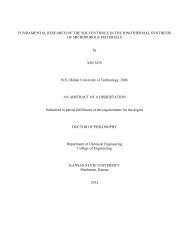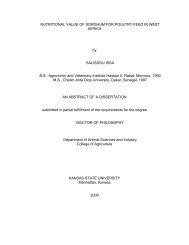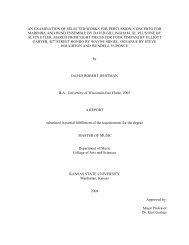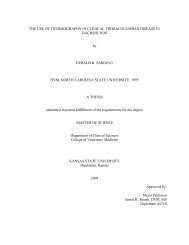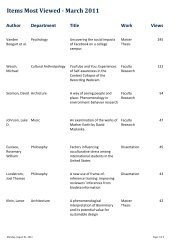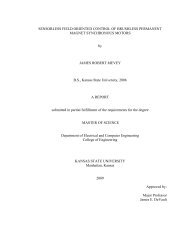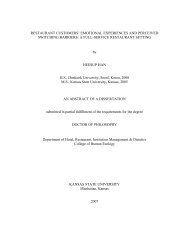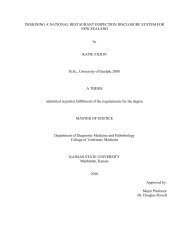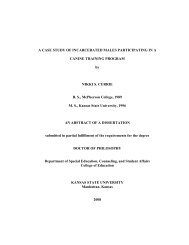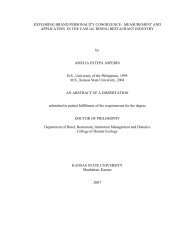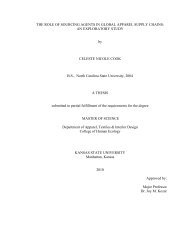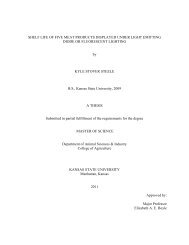SELFISH INTENTIONS - K-REx - Kansas State University
SELFISH INTENTIONS - K-REx - Kansas State University
SELFISH INTENTIONS - K-REx - Kansas State University
Create successful ePaper yourself
Turn your PDF publications into a flip-book with our unique Google optimized e-Paper software.
none of these situations was the possibility of remarriage sanctioned; the “divorce in bed and<br />
board” lasted until one of the partners was deceased. In each action, the chancery courts issued<br />
“separate maintenance orders,” less out of concern for women than to insure that the husband<br />
continued to support his wife and thus spare the community of the expense of her support. 23<br />
Once again, the records indicate a gender differential. Virtually all of petitions for<br />
separate maintenance suits in the Southern colonies were initiated by women. Women usually<br />
had good cause for requesting maintenance. Men could try to separate from their wives without<br />
paying anything so they did not have anything to gain by filing a suit; however, women could<br />
and did sue their husbands in order to regain control of their dowries or a portion of their<br />
husband’s estate. The ability to sue for separate maintenance in a court of chancery helped<br />
women disadvantaged by coverture to regain desperately needed financial relief when their lives<br />
were jeopardized by absent, cruel, or adulterous husbands. Riley found that most separate<br />
maintenance cases in Virginia were filed for on the grounds of cruel behavior by the husband. In<br />
1700, for example, Elizabeth Wildy, the wife of a landholder and local county official, filed for<br />
separate maintenance contending that her husband “had beaten her, held her in the fire, and<br />
threatened to shoot her.” 24 The court ruled that her husband had to pay her an annual case<br />
payment for his actions. In short, Virginia women separated from their husbands used the court<br />
of chancery to gain some sense of financial security, even though they were denied that<br />
possibility of absolute divorce.<br />
The strictness of colonial divorce law does not, however, reflect actual practice. As<br />
VanBurkleo has noted, in reality the colonists, particularly men, could practice a “fluid<br />
23 Ibid.<br />
24 Ibid., 52-53.<br />
6



